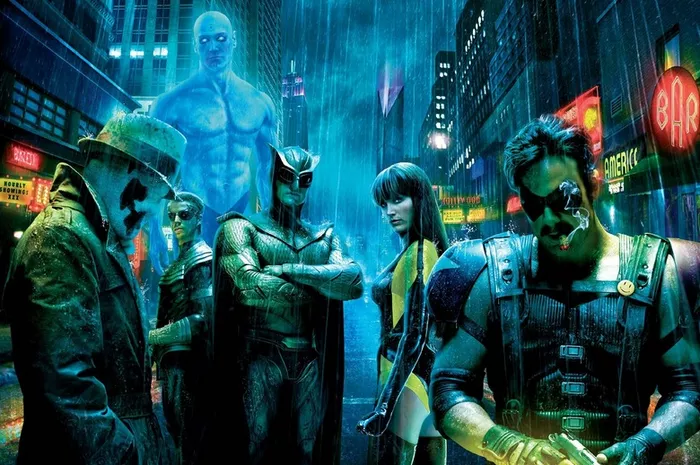Renowned filmmaker Christopher Nolan recently expressed his belief that Zack Snyder’s Watchmen, released in 2009, was ahead of its time and would have fared even better if it were released in a post-Avengers era. This statement has ignited discussions among fans and critics alike, prompting a closer examination of Watchmen’s unique qualities and how they align with the current landscape of superhero storytelling.
I. Watchmen: A Satirical Masterpiece Ahead of Its Time
Watchmen, based on the graphic novel by Alan Moore and Dave Gibbons, is a cinematic masterpiece that deviates from conventional superhero narratives. Directed by Zack Snyder, the film is a satirical take on the superhero genre, presenting flawed individuals with immense power. Its complex characters and morally ambiguous storyline challenged traditional notions of heroism, setting it apart from the more straightforward superhero narratives of its time.
Christopher Nolan’s assertion that Watchmen was ahead of its time is a testament to its visionary storytelling. In a cinematic landscape dominated by formulaic superhero tales, Watchmen dared to be different. It explored the psychological and moral implications of superheroism, delving into the dark and intricate corners of its characters’ lives. The film’s thematic depth and narrative complexity were perhaps underappreciated in an era when audiences were more accustomed to straightforward hero-versus-villain dynamics.
II. A Fresh and Intelligent Perspective on the Genre
Watchmen is not just a superhero movie; it’s a deconstruction of the entire genre. It presents superheroes as flawed and morally ambiguous individuals, grappling with the consequences of their actions. This departure from the conventional superhero narrative is what makes Watchmen a standout film in the DC universe. Its intelligent and thought-provoking approach to storytelling elevates it to the realm of cinematic art, offering audiences more than just dazzling action sequences.
The film’s exploration of ethical dilemmas, the nature of power, and the blurred line between heroism and vigilantism adds layers of complexity that resonate with audiences seeking substance in their entertainment. In an era where audiences are increasingly demanding narratives that challenge and engage them intellectually, Watchmen’s unique perspective positions it as a film that transcends the limitations of the superhero genre.
III. A Time for Clever and Unique Takes on Superheroes
As Christopher Nolan suggests, Watchmen’s potential success in a post-Avengers era can be attributed to the shifting preferences of contemporary audiences. The superhero genre has evolved, and audiences are now seeking narratives that go beyond the traditional hero’s journey. The success of shows like The Boys and Invincible, which deconstruct superhero tropes and explore darker, more mature themes, is indicative of a changing appetite for superhero stories.
Watchmen’s satirical and subversive approach to superheroism aligns with this evolving trend. In an era marked by an abundance of superhero content, from films to TV series, audiences are experiencing a degree of fatigue with formulaic narratives. Watchmen’s willingness to challenge the status quo and present a more nuanced and realistic portrayal of superheroes positions it as a potential game-changer in a time when viewers are hungry for clever and unique takes on familiar tropes.
IV. Resonating in a Time of Superhero Fatigue
The term “superhero fatigue” has become increasingly prevalent as the genre saturates both the big and small screens. While the popularity of superheroes remains high, there is a growing demand for narratives that subvert expectations and offer a fresh perspective. Watchmen’s release in the current landscape could benefit from this fatigue, providing audiences with a breath of fresh air in a genre that sometimes feels formulaic.
The film’s exploration of complex characters, moral ambiguity, and the consequences of wielding extraordinary power positions it as a story that can resonate with viewers seeking more substance from their superhero entertainment. In a market flooded with colorful and action-packed heroics, Watchmen’s darker and more introspective tone may find a receptive audience eager for narratives that push the boundaries of the genre.
In conclusion, Christopher Nolan’s assertion that Zack Snyder’s Watchmen would be even better now is a compelling perspective that prompts reflection on the evolution of the superhero genre. Watchmen’s unique qualities, ahead-of-its-time narrative, and satirical take on superheroes position it as a film that could find greater appreciation in today’s storytelling landscape. As audiences crave clever and unique takes on superheroes, Watchmen stands as a beacon of innovation, ready to captivate a new generation of viewers with its thought-provoking exploration of power, morality, and the human condition.

